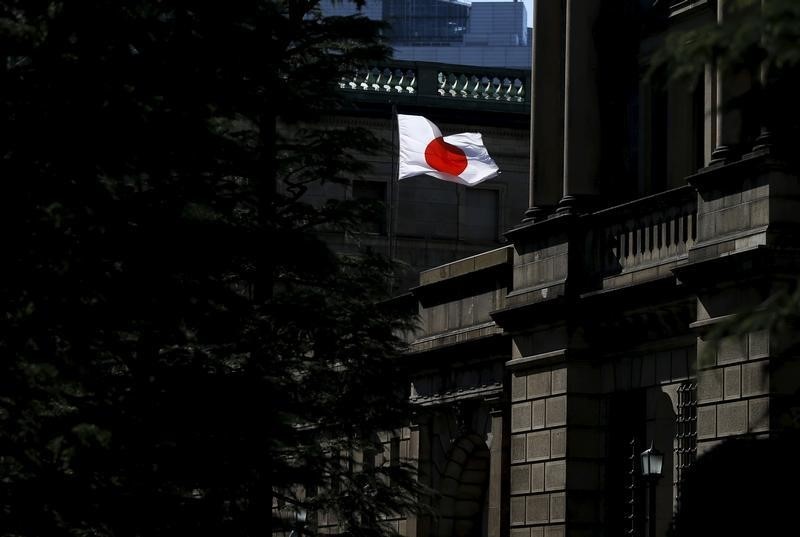Select Language

Investing.com-- The Bank of Japan raised interest rates by 15 basis points on Wednesday and said it will gradually halve its pace of monthly bond purchases by 2026 as it winds down its ultra-dovish policy and quantitative easing measures.
The BOJ hiked its benchmark short-term interest rate by 15 basis points to a range of 0.1% to 0.25%. Market expectations were split between a hold and a potential hike of 10-15 basis points.
The central bank said it will reduce its pace of Japanese Government Bond purchases to 3 trillion yen ($19.59 billion) from its current pace of 6 trillion yen by early-2026, in line with general consensus. The BOJ said it will reduce its pace of JGB buying by 400 billion yen each quarter.
The BOJ’s move to reduce its QE measures was mostly telegraphed by the bank during its June meeting.
BOJ members were seen lowering their outlook for economic growth and inflation in the near-term. A median of BOJ member forecasts for real gross domestic product in fiscal 2024 to 0.6% from 0.8%, and while the outlook for core consumer price index inflation fell to 2.5% from 2.8% for the year.
Still, BOJ members were seen slightly hiking their outlook for core CPI in 2025, to 2.1% from 1.9%.
The Japanese yen weakened slightly after the decision, with the USDJPY pair- which gauges the amount of yen needed to buy one dollar- rising 0.3%. Weakness in the yen came as some traders were disappointed with the BOJ’s extended timeline in winding down its QE measures, as well as its soft near-term outlook for the Japanese economy.While consumer confidence increased this month from June's revised level, buying intentions over the next six months fell across the board. The share of consumers planning to buy a house was the lowest since February 2013.
That suggests a strong housing market rebound is unlikely even as mortgage rates have retreated after surging in spring and house price inflation is slowing.
A third report from the Federal Housing Finance Agency showed house prices increased 5.7% year-on-year in May, the smallest gain in 10 months after rising 6.5% in April.
"It will take until 2025, or even 2026, for the market to become better balanced," said Thomas Ryan, North America economist at Capital Economics.
Wednesday's rate hike comes amid some improvements in Japanese inflation over the past two months, especially as consumer spending improved on stronger wages. This trend furthered the central bank’s forecast that inflation will reach its 2% annual target sustainably, and that monetary conditions will have to tighten accordingly.
This forecast had driven the BOJ’s first rate hike in 17 years in March, where it brought rates into positive territory after nearly a decade of ultra-loose policy.
Other data released on Wednesday showed some improvement in Japan’s economy, with retail sales rising more than expected in June, while industrial production shrank less than expected.
Still, the Japanese economy was nursing a sharp contraction in the first quarter of 2024, which raised doubts over just how much headroom the BOJ has to tighten policy further.
Which stock should you buy in your very next trade?
With valuations skyrocketing in 2024, many investors are uneasy putting more money into stocks. Unsure where to invest next? Get access to our proven portfolios and discover high-potential opportunities.

